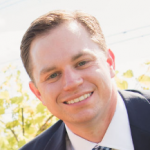A True King
Readers, I have a confession: I’ve been less than…entertained by some of the shows I’ve been going to lately. That’s not to say I’ve seen bad bands, but for whatever reason, I haven’t been feeling the proverbial “it.” But let me assure you that the self-proclaimed King of Power Pop, Paul Collins, totally got me hyped. If you missed him this past weekend, that’s really a shame. As one of the founders of the legendary Nerves, Paul Collins now performs with Paul Collins’ Beat (formerly just the Beat) and has continued to rock the pop scene harder than anyone out there.
I do not have enough kind words for the gracious Paul Collins. The man is full of life, enthusiasm, and talent to boot. And boy is he hardworking, and humble (a truly undervalued quality). Despite his busy schedule, Mr. Collins took a little bit of time to speak to yours truly about power pop, the Beat Army, and, of course, rock n roll girls.
Great. It’s the beginning of a new phase for me. We’re doing this whole DIY thing with the Beat Army, and this is the third part of the tour. We started in the south, I went down there and worked with the guy who did the record with me, Eric Blakely, and we hooked up with the rhythm section of a band from Jackson, Mississippi called the Hypnotic Chickens. We played Mobile at this great club, Alabama Musicbox; we played Oxford, Mississippi and we recorded a single for a very well-known label in the south called Fat Possum records. And then I came back, went up to Canada, and that’s when I met up with Tim [Schweiger], Chris [Bongers], and Juancho [Lopez]. Chris and Juancho live in Madrid, and I used to live in Madrid till about two years ago, so Chris, Juancho, myself and a Spanish guitar player, Manolo, have toured all through Europe. In fact I’ll be going back in December to do some shows with them.
The new album just came out, it’s getting incredible press, and I’m very,very happy about that. When we’re done here, tomorrow we play Lafayette. And we’ll take a couple weeks off, and then we start up again in San Diego and we’ll do the West coast. And this is kind of like back to the basics, DIY touring, no hotels, no rental cars. We work with local musicians/local bands like Ian Olvera, from Green Bat — he set up this tour. A lot of it’s up to Facebook, it’s great! The Canadian tour was amazing, we worked with these two really, really great new power pop bands, one from Ottowa called Mother’s Children, and one from Montreal, Walnut Kids. It’s really refreshing to work with up and coming bands that are positive, full of energy, and doing good things.
Definitely. Tell me more about the Beat Army.
I was talking to the guy who put out my record, Patrick from Alive Records, and you know I’m very optimistic, and this is before we even recorded. I said, “You know this is going to be great, we’re going to sell lots of copies!” And he said, “Listen, I hate throw water on your scene, but the reality is this,” — he’s a very practical man — “There’s only fifty stores in America that sell this kind of music, and at best you can sell one thousand copies, at best two thousand.” Now I’ve been playing this music for thirty five years, and after I got of the phone with him, I said, “Man, that sucks! There’s no way, I can’t believe that, I can’t accept that.” So I started the Beat Army because I know there’s a lot of people that say they like power pop and a lot of times you hear, “Oh the band was so great, I don’t know why there were only three people!” We have to mobilize ourselves, we have to do what the musicians in the indie rock scene have done, what the guys in the hardcore scene have done, what the guys in the punk scene have done. They have mobilized their fans and their fan comes out and support them.
This music needs the same thing. If you like this music — and I’m dead serious — get up off your ass and do something! Make the effort to go to the show, bring people with you. The target and the first real main objective of the Beat Army is to get one hundred paying people at each show. I know it doesn’t sound like much, but it’s really hard. We get that much about 40 percent of the time. And it’s valid, this music is now going into its second generation, so it’s not just some passing fancy. It’s great music, and if you see people that enjoy it, you realize that it’s a great thing and we need to preserve it.
Just go to shows! I mean some of these tickets are $5, come on! If nobody comes out, nobody buys the records. The record companies that put these records out are small, so if they don’t sell records, they have no choice but to quit. Nobody’s independently wealthy, no one can afford to spend thousands of dollars recording and manufacturing records if no one buys them and everyone downloads them.
That’s very true.
That’s reality. It’s like anything else. Are you going to work for free? No. You’re going get a job that pays. And we don’t want to do that; we want this music to survive. So, it’s a real crusade for me now, and mainly I want to position myself in the front of it because I’ve been doing this for thirty-five years and I have the credentials to say that.
Speaking of, I have, in my short time on this earth, seen a good amount of music, and you rock harder than most people that are my age. What’s your secret?
I think my secret is that, first and foremost, I started out as a fan. I didn’t know how to play an instrument, I didn’t know anything about music, I just thought that if I could do that, it’s the coolest thing in the world. And I try to remind myself of that all the time, when things are difficult, I think “Man, I am lucky to be able to do this.” And I love it. I really love it. I love music, I love my own music, but I just love being part of the music world. And I put a lot of time and energy into what I do, because I want it to be good. I compare myself to people who are masters, like the Beatles and the Stones and the music of the sixties which influenced me greatly, and I want to do stuff that good. That’s the challenge, always. It’s easy to dismiss this music as just simple little pop music. Sit down and try to write a really good pop song. Just try, it’s very, very hard.
I just think that this music should be taken as seriously. What pisses me off is when I read writing about rap music. Not that I don’t like rap music, I think there’s room in the world for all kinds of music, and I don’t dislike any other type of music, but I do dislike when they write about 50 Cent like he’s some big deal, like it’s real serious music and our music is shit. I think our music is every bit as good and should be taken seriously. That’s all.
Is there anything, other than your love for music, that has kept you going all of these years?
Well, I am a very proud father. I have a sixteen-year-old son, and I think having a kid is one of the greatest things I did. It keeps you young, because you get to have a second childhood with your own child. And I’m very lucky that I have a happy, healthy, safe son, and he shares the enthusiasm. In fact this year he went out on the road for the first time, he did our merch table, and it was fantastic. And that’s an important part of my life. And now it’s nice because at a lot of our shows, parents and kids come together. In the old days I’d say “Ahhh who wants to go to a show with your parents?” But that’s one of the beauties about this kind of music, it’s not preaching anything negative or destructive, it’s just happy music. And sometimes this has worked against it. It’s not dangerous; it’s about girls, work, traveling, stuff like that. Having a kid has been a big part of my life. Maybe I never grew up. [Laughs]
 I think that growing up is all relative. You’re doing what you want to be doing, and that’s really all anyone can ask of a person.
I think that growing up is all relative. You’re doing what you want to be doing, and that’s really all anyone can ask of a person.
It’s true. And I have to remind myself of that too, because I look around me, and I would love to have a number one hit single (and maybe someday I will) or if somebody would cover one of my songs and have a hit with it, which would be just as good. And I was very close. I mean the Nerves would sit in a burnout basement playing “Hangin’ on the Telephone,” and then it became a big hit for Blondie, so I know I was very close to that fire. I have everything to be thankful for. For a guy who didn’t know anything about music, to have been able to carve out the reputation and the ability to be able to do this as a living is great. It’s great.
Speaking of hits — maybe it’s not a number one hit — but Rock ‘n’ Roll Girl…
I’m so proud of that song.
That’s probably one of my all time favorite songs. I mean, that’s the song that like at every part, every after bar, that song is played. It’s fantastic. Did you have any particular inspiration behind it?
I wrote that song in Hollywood, before the Beat got signed. I remember when I wrote it — I was taking a nap, and sometimes you drift off, you’re not really awake, you’re not really asleep, and I was parking cars at the time, and the song had started off like “Hey Ma, look at me I’m a parking lot star.” And I was dozing off and it just morphed into “I wanna be with a…” and BOOM. That’s it. And I really think that sometimes these songs are gifts. I always like to refer to myself as the “fishing musician,” (I do love to fish) — if you’re gonna catch a fish you have to have your hook in the water, and that’s kind of the way that it is with songwriting. You open yourself up to the universe and these things they just come to you. And I don’t know what the secret is to songwriting, and I’ll never know. Every time I try writing a new album, it’s like starting over, and it’s horrible sometimes when you’re playing the same chords and everything sounds ugly and terrible. Then all of the sudden something comes along and it’s like boom, that’s it. And that’s exciting. That, to me, keeps you honest, it’s not a formula.
So what advice would would you give to someone who was in your position however many years ago? A fan who wants to be part of it, who wants to do what they can.
I think that one thing I’m proud of about myself is that I’m someone with a dream who just doesn’t give up. I’ve always been going against the grain and it’s against all odds…I mean when the Nerves started, we’d get thrown out of everywhere, people would tell us what we played was not music. It’s very abusive, you’ve got to have thick skin to withstand that. But I couldn’t imagine doing anything else, it wasn’t a choice. It was either do this or I don’t know what. But I do think that if you have a dream, you should follow it. I think also that you have to be persistent, but I also think you have to put in the time. And we put a lot of time into this. We weren’t hanging out in bars, chasing girls. We were working on our stuff.
I think that’s the thing. People see the rock and roll lifestyle, and they think, “Oh it’s just partying and drinking.” I think people get stuck in this bad habit of drinking and going out a lot.
That sort of thing will never get you anywhere. That’s a logical thing. I think if you really want to do something, you really have to dedicate yourself. Because, first of all, there competition in any field is extremely high, and if you want to be at the top of your game, you really have to put time and energy into it. And it’s not at bars, and it’s not hanging out, screwing around. The time to do that, and I’m lucky I did that and the Nerves did, is when you’re young. Because you have the energy and the time. You have no responsibilities. When we started we didn’t have, families, we didn’t have jobs, we didn’t have anything! And we were lucky that, instead of hanging around bars, we put the time into music, and it paid off. All you gotta do is listen to that first EP the Nerves made. That is a fabulous recording, made by three guys in their early twenties (I was eighteen) and we really did our homework.
Yeh, it is fabulous, I listen to it fairly frequently.
I’m so proud, when I hear that record today, it’s like “Wow, yeh, we were really good!” So if you put the time and energy into something, you get the payback. And I’ve been very lucky. We worked really hard, you know, the Beat, and all the projects and great musicians I’ve been involved with. When we got up to the plate, we were ready. And that’s the key thing.
If people want to be part of the Beat Army, Facebook, that’s where to find you, right?
For now it’s Facebook because it’s free and it’s interactive. We’re up to 2300 people now, in the last, I don’t know, three or four months. I want to get it up to 6 or 7000. I want people in the outside world to see the Beat Army and go, “Wow, now there’s some numbers there.” It’s the real world, numbers make people take notice, take it seriously. And we need to get everyone who says they like this music to join us, and the first thing is to help support it, to go to show.
All you do is put Beat Army in your search bar, and if you go there and send me a message, I answer all the correspondence. If you go through the photo section, you can see all the bands and clubs and stuff and online radio stations that support us. There are really interesting interviews with all sorts of people connected to power pop. And the fan photos section is really great, it’s just random pictures I take of the people who have joined us and it’s really cute and funny.I f you’re a band, get in touch with me, because it’s all about promoting the people that do this music. We need you to help us. In this thing, each person can make a difference, and I really can’t stress that enough. If we all get together, this will be a force to be reckoned with. That’s what I really want.
And there you have it folks, the legendary Paul Collins.

















What does Paul Collins have to do with Milwaukee? It’s totally cool that you interviewed him, but this piece is tagged “Mil Music”. I don’t get it.
This interview was done before his show in Milwaukee. He played in Milwaukee, whilst being backed by Milwaukee/Wisconsin musicians.
And if we’re really getting into the nitty gritty, you can email the editors as they are the ones who take care of that business.